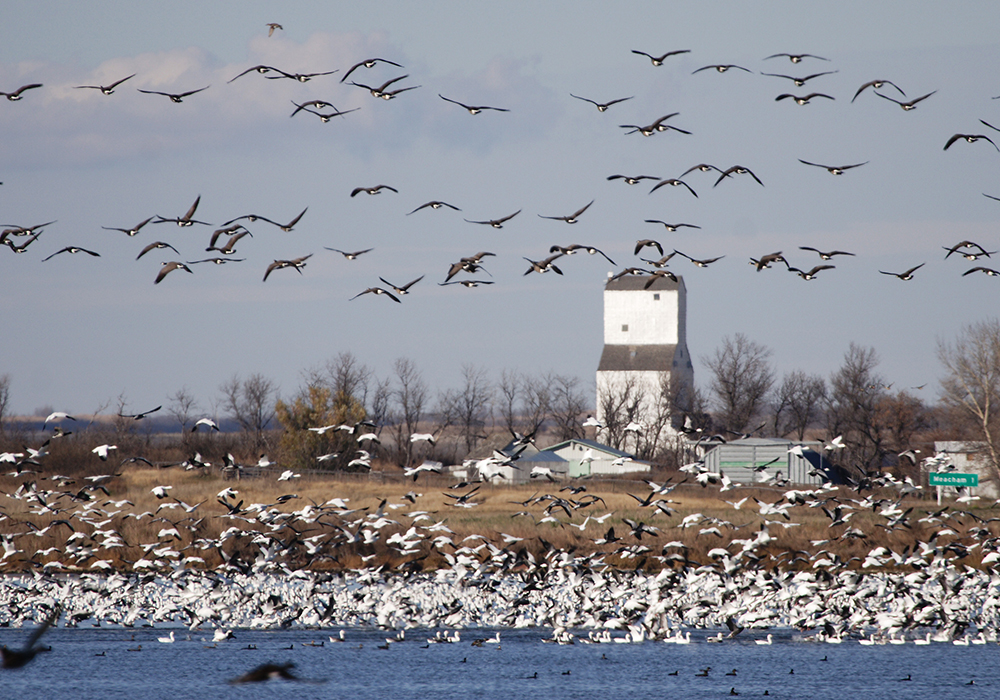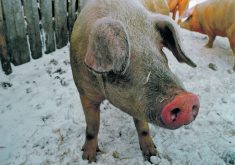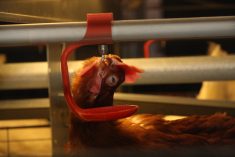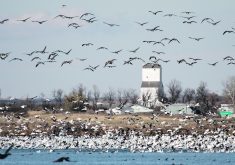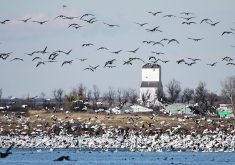Federal environment department recommends leaving carcasses alone but to use caution if landowners must pick them up
Migratory flyways are littered with the carcasses of dead birds, many of them snow geese, due to the current outbreak of highly pathogenic avian influenza.
Environment and Climate Change Canada said it had received 100 mortality reports from 35 Saskatchewan rural municipalities, ranging from a single bird to more than 100, although it couldn’t say all were caused by avian influenza.
The disease has been confirmed in gulls, waterfowl, raptors and corvids.
Richard Erb, who has farmland in southeastern Saskatchewan along the Souris River, said he has never seen as many dead birds as this spring. Flooding along the river creates what’s known as the Yellow Grass North marsh.
Read Also
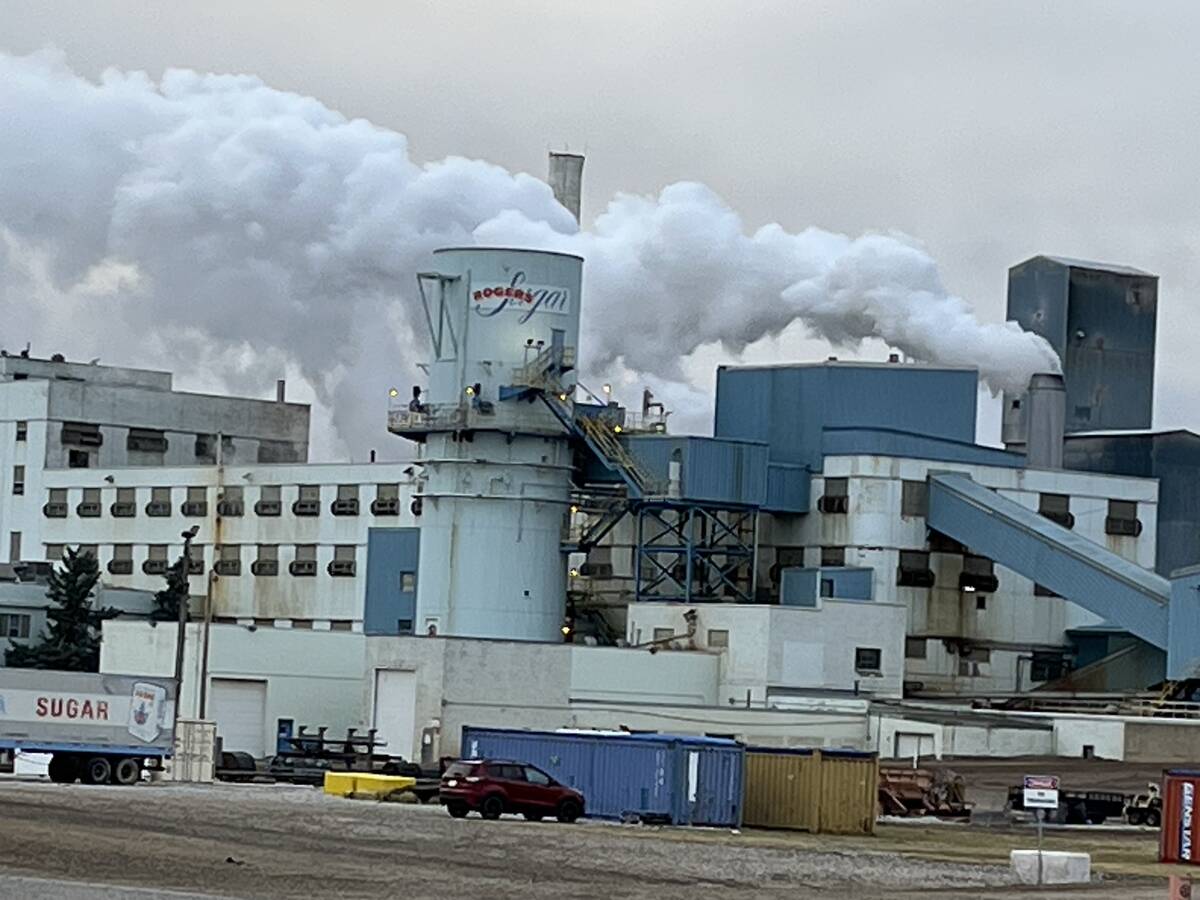
Sugar beet harvest underway in southern Alberta
Alberta Sugar Beet Growers hosts field tour to educate the public on the intricacies of the crop, its harvest process, and contracts with Lantic Sugar
“As a result, the geese spend quite a bit of time there,” he said last week. “There are a lot of sick, dying and dead birds, mainly snow geese.”
Erb said the birds display the symptoms of avian influenza: disorientation, head bobbing, swimming in circles and inability to fly.
“They’re usually dead within 24 hours,” he said.
Although it’s impossible to count the bodies, he said there are hundreds if not thousands of them. As the water recedes more are likely. He said some float upside down for a while.
Saskatchewan Environment said there is no mandate to remove wild bird carcasses.
“The recommendation is for the birds to be left in place to decompose by natural means,” the ministry said in an emailed statement. “In the event that the mortality is in an area frequented by the public (school yard or park), those instances would be handled on a case-by-case basis.”
People should wear a mask and gloves if picking up a single dead bird that could be a concern for pets or children. It should be placed in a plastic bag for proper disposal.
Erb said predators such as foxes and coyotes will clean up a lot of the carcasses.
ECCC said dead wild birds should not be touched and reported immediately to the appropriate provincial authorities. This includes the TIP/Forest Fire Situation 24 hours line in Manitoba at 800-782-0076, the environment Inquiry Centre in Saskatchewan at 800-567-4224 and Alberta Environment and Parks at 310-0000.
“Scientific analysis is required to confirm the cause of death in a wild bird,” said ECCC spokesperson Sonia Noreau-Perodeau, adding that song birds can be infected and die of HPAI but those events are rare. The current strain, H5N1, has only been reported in a handful of North American songbirds so far.


